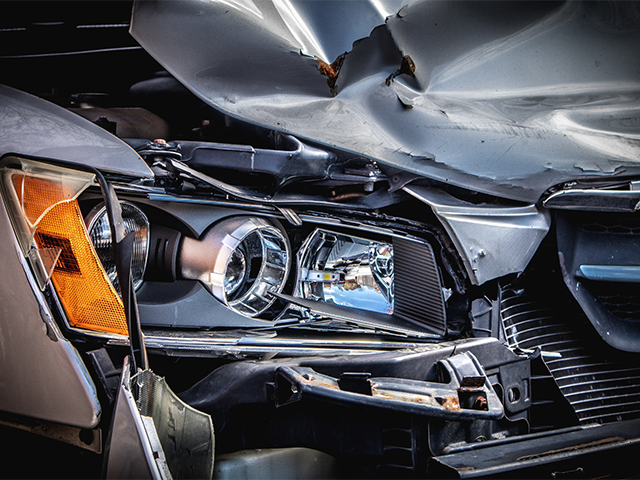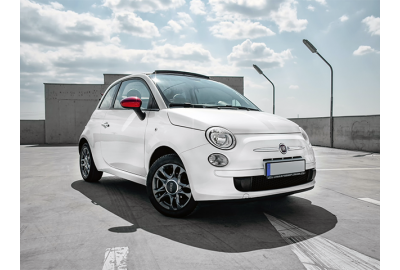What Happens When You’re Car Gets Written Off?

Guaranteed Asset Protection (GAP) is often overlooked as an insurance policy. However, if your car is written-off or stolen, a GAP policy could mean you won’t be financially damaged.
Having said that, GAP insurance is not ideal for all car owners. Policies only kick-in the insurance company declare the vehicle is a “write-off” or “total loss”.
A vehicle is deemed a total loss when the costs of repairing the vehicle are higher than the market value of the car at the time the car suffers damage.
It’s worth noting that loaned or leased cars are not necessarily deemed written off only when the car is irreparable and deemed unroadworthy.
Car insurance companies will write off a car wherever the repair costs outweigh the value of the vehicle.
That means that even minor repairs or cosmetic damages can lead to a car being declared written off.
Having your car declared a write-off can have a negative impact on your finances if you still owe more money on your finance deal than the car is priced in the current market.
The rapid depreciation of cars should be taken into account.
In this article, we take a deep dive and explain:
- what happens when your car is written off,
- how this impacts you financially
- and the options you have if your car is declared a write-off.
What Happens When Your Car Gets Written Off?
Whenever a car is deemed written off, insurance companies evaluate the cost of a car in the current market value. Various factors are taken into account including mileage, owner history, and sell-on value.
Your insurance company will then offer you a ‘settlement fee’ which amounts to the cost of the vehicle according to their calculations.
If you still owe money to the finance company on your current loan, you could be left out of pocket.
What Do Insurers Class As A Write-Off?
There’s a misconception around the term ‘write-off’. It’s generally thought that when a car has been in an accident and declared a total loss that the car is unroadworthy and beyond repair.
This is not necessarily the case. As we mentioned above, car insurance companies will total any car that is not deemed ‘economical’.
Economical is a term that is used to determine whether the cost of repairing a vehicle is less than the market value of the car.
In other words, if a car with a market value of £2000 needs a new engine and some bodywork to the tune of £3000, the car will be written off. Even if the car is perfectly roadworthy but requires updating, the car will be totalled.
What Happens Financially?
When a car is declared written off, it’s retained by your insurance provider. By way of compensation, you will be offered a settlement amount that was agreed in your finance deal or less.
For example, if you agree to a pay-out of £5000 when you initially agree to the insurance policy, your settlement fee will not be greater than £5000 even if the car is worth more than that at the time of the accident or theft.
If the car is worth less than £5000 when it is totalled, your payout will be the current market price of the vehicle - less the excess amount you agrees to when you signed the policy.
So in this scenario, the most you will receive as settlement is £4500. If you still owe more than £4500 to the finance company you took out your car loan with, you are left out of pocket.
To calculate the settlement figure, therefore, depends heavily on the amount of excess you are liable for on your car. This could be anything from £150 for basic excess insurance to over £2000 depending on the level of coverage you want on your car.
If you’re not happy with the settlement amount offered by your insurance company, you can raise a dispute. However, if you have already agreed on a maximum pay-out in your initial policy, your dispute won’t carry any weight.
The settlement you do receive will most likely go towards paying the insurance you already owe on your current finance deal. That means you’re paying for an asset you no longer own.
You may be able to get a loan to finance the purchase of another car, but your monthly outgoings will be increased.
Essentially, the amount you will be paying out will make the car feel overpriced which you resent every time you tuck yourself in behind the driver's wheel.
How Much Could You Lose If Your Car Is Written Off?
The amount you lose depends on the cost of your car when you first purchased it and how long you’ve had the vehicle before it’s declared a total loss.
You can get a feel for how much you could expect to lose by knowing how quickly certain cars lose market value. We’ve covered that topic in a previous article which you can read here.
Most cars depreciate by 15-35% of their value in the first year and 40-60% after three years. Needless to say, you could end up paying a significant amount of money for a car you no longer have.
What Are The Types Of Write Off?
Insurance companies have several categories which identify the types of damage that determine whether a car is declared totalled. They also determine what happens to the car once the vehicle is ‘retained.’
The type of category a write off falls into also impact your rights as to what happens to the car. In some circumstances, you have the option to re-purchase the car from the insurers.
The Categories Are As Follows:
Category A (Scrap)
Vehicles that are deemed too damaged or old for repair will be scrapped. Category A also indicates the parts are not reusable and cannot be sold second-hand. Settlements valued in category A are typically the lowest because the vehicle is practically useless.
Category B (Break)
Cars that are too old or damaged but some parts can be salvaged will fall into category B. Parts that can be sold as second-hand assets or reused will be included in the settlement pay-out.
Category S (Structurally Damaged Repairable)
Category S are vehicles that have damage to the structure (chassis or bodywork) and can be repaired. Vehicles that fall into this category can be returned to you but must be re-registered with the DVLA before you are legally permitted to drive them.
Category N (Non-Structurally Damaged Repairable)
Category N are cars that have been superficially damaged but have not suffered any structural damage. The vehicle remains intact but the cost of repairing the damage is worth more than the vehicle. This category typically features old cars.
Vehicles that fall into categories A and B are typically despatched to a salvage company. Vehicles in S and N can be resold.
You have the right to negotiate a sale price with the insurance company to purchase the vehicle back from them. If you feel you can get more for the salvage of cars in A and B or repair the damage yourself and sell it on for a profit.
If you do repurchase cars in categories S and N, you must re-register the vehicles with the DVLA before they are can be driven on the road.
It’s also worth noting the cars that have been categorised as S and N are more expensive to insure.
Is There Anything You Can Do If An Insurer Declares Your Car A Write-Off?
You are entitled to disagree with an insurer that declares your car is deemed a total loss. However, disputes rarely favour the insured.
The best you can hope for is to accept the settlement and negotiate a price to repurchase the vehicle. This gives you the opportunity to recover a higher payout for the salvage or repair and resale.
It should be noted that once you agree on a settlement fee, the insurance company takes legal entitlement of the vehicle and are free to do whatever they want with it.
If you are planning to purchase the car back from them, notify them immediately otherwise they may have already arranged for it to be salvaged or sold to a second-hand dealership.
If you feel the insurance company is not correct with their evaluation or has treated you unfairly with regards to the pre-arranged ‘settlement value’ or excess insurance, you could lodge an appeal with the Financial Ombudsman Service.
So, How Will GAP Insurance Help You Avoid Financial Loss?
When a car is written off the value of the car is calculated on the current market value - not the amount you purchased it for or the amount you have left to pay on your loan.
Gap insurance, on the other hand, covers you for the amount you have left to pay on your loan or lease. This means that no matter how much the car depreciates, you will not suffer a financial loss.
To give you an example, let’s say you purchase a brand new Audi A1 for £24,000. At the time you purchase the car you take out finance for the full amount at a rate of 2.4% interest.
The total amount you have to pay for your brand new Audi A1 is £28,608.
As soon as you drive the car off the dealer's forecourt, your asset is only worth £21,600. You’re already facing a loss of £7000 if the car is written off in its first year.
But let’s be optimistic. Let’s say you have the car for three years before the car is written off. During that time, you have been repaying your loan at a rate of £280 a month and to date have paid £10,800 off your £28,608.
That leaves with a total amount of £17,808 to pay. However, after three years your car has depreciated by 50% and only carries a market value of £14,304.
You also have to pay £350 in excess. That means your settlement offer from the insurance company will be £13,954.
That means you still have to pay the finance company £3,854 for an asset you do not have.
GAP insurance would cover the outstanding £3,854 to bring you out as even. This will mean you are able to afford another vehicle without having to pay for the car that has been written off on top of the new finance deal.
What Are The Key Reasons To Buy Gap Insurance?
Because the value of a brand new car depreciates so quickly, car owners will nearly always be out of pocket when a vehicle is declared written off.
Moreover, the more miles you travel the more the car depreciates in value. Cars that are used for business purposes almost never recover the full market value.
The more a car costs when you first purchase it, the more it is likely to depreciate over time. If you are unfortunate enough to have an accident or if the car is stolen, you could be left paying several thousands of pounds for an asset you no longer own.
How Can I Get Gap Insurance?
Most insurance companies offer GAP insurance but it is only available if certain conditions are met.
- First of all, you must have an existing comprehensive motor insurance policy.
- The vehicle that is written off was less than 8-years old when you purchased it.
- The car was acquired through a car dealership and not from a private sale.
Conclusion
While GAP insurance will not satisfy everybody’s circumstances, it does offer financial security for most car owners. Regardless of the age of your car, the value of the asset typically depreciates faster than you can pay it off in the first three years of ownership.
GAP insurance, therefore, prevents you from suffering any financial loss if your car is written off after an accident or reported stolen.




